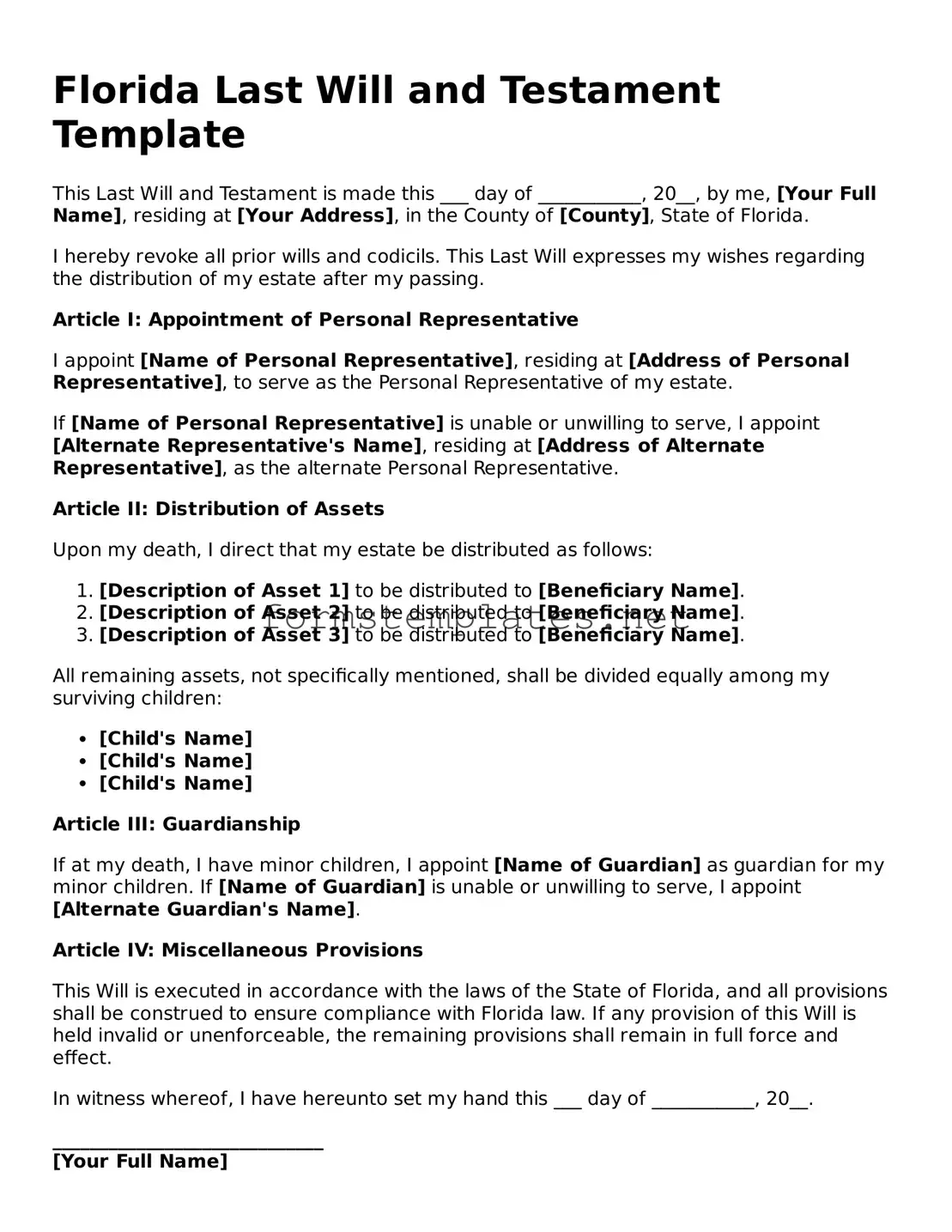Attorney-Approved Florida Last Will and Testament Template
A Florida Last Will and Testament form is a legal document that outlines an individual's wishes regarding the distribution of their assets after their passing. This essential tool not only ensures that personal belongings are allocated according to one's desires but also provides peace of mind for both the individual and their loved ones. Understanding the nuances of this form is crucial for effective estate planning.
Open Editor Now

Attorney-Approved Florida Last Will and Testament Template
Open Editor Now

Open Editor Now
or
⇓ PDF Form
Your form still needs attention
Finalize Last Will and Testament online — simple edits, saving, and download.